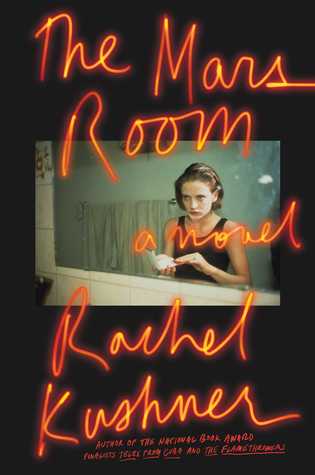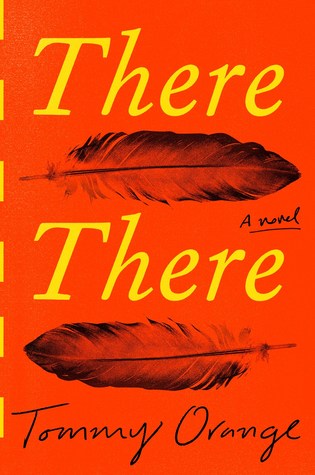Not having plans doesn't mean I don't have regrets.
If I had never worked at the Mars Room.
If I had never met Creep Kennedy.
If Creep Kennedy had not decided to stalk me.
But he did decide to, and then he did it relentlessly. If none of that had happened, I would not be on a bus heading for a life in a concrete slot.
I hadn't read Rachel Kushner before, and having finished The Mars Room, I can only conclude that she can write. And as it feels like this writing occurs on three levels, I'm prompted to evaluate each separately. At the micro-level, Kushner writes delightful and perceptive sentences; I was often struck by her uniquely apropos turns of phrase. At the mid-level, Kushner has assembled a group of stories of prison life and the life choices that led to characters' incarceration, and even before I realised they were based on real people's experiences (including Kushner's own delinquent teen years), they felt like an important act of witnessing and recording what is actually happening out there today. And yet at the macro, overall level, this didn't really add up to a satisfying novel for me; the disparate parts too contrived and agenda-driven. I would read Kushner again.
All the talk of regret. They make you form your life around one thing, the thing you did, and you have to grow yourself from what cannot be undone: they want you to make something from nothing. They make you hate them and yourself. They make it seem that they are the world, and you’ve betrayed it, them, but the world is so much bigger.When the book opens, we meet Romy Hall on a prison bus; riding along as she travels towards the two life sentences (plus six years) that she will serve in the world's largest women's prison, located in Northern California. POV rotates to several other characters (prisoners and others, though Romy is the focus) and we learn what forces (poverty, racism, lack of education or parental guidance) seem to frogmarch some people into criminal behaviour, and then witness those forces (overworked public defenders, indifferent judges, uninformed juries) that weigh the justice system against those without the money or power to properly defend themselves. There's an honesty to the stories that are told – they don't quite travel as a point A to point B narrative – this is just the way it is, and these vignettes form a complete and open-ended picture. For the most part, this is a satisfying structure. I was interested to read this article about Kushner in The New Yorker and learn where these stories came from, and especially, how her own early years were used in The Mars Room:
Beatnik poverty, in Kushner’s telling, was a kind of gift, helping her develop taste and politics and irony, and leaving her with an open admiration for her parents that you rarely find in adult artists. She read Steinbeck and Nelson Algren and listened to the wacky stories told by her parents’ Prankster-adjacent friends. “I thought, Literature – you really have to know hobo livin’,” she says. “It was reproduced in the social environment I was in.” Interpreting the world, she understood, meant remaining alert to moments when someone does something poetic. “The more in the world you are, the higher your chances are of witnessing that,” she says. “It wasn’t so much about studying literature – it was about being.”Much of Romy's teenage years are based on Kushner's own delinquent experiences, and it gives a real “There but for the grace of God” vibe to the story: Kushner's parents may have let her run wild as a teenager, but they were still there for her in a way that Romy's mother couldn't be; small differences lead to vastly different outcomes, and in real life, Kushner is the one who spends time visiting the women's prison and sharing books by Denis Johnson. (Which I assume is the reason for the references to Thoreau and the Unabomber: the recluse poet just might have started attacking people if they were tearing up the woods around Walden Pond with dirt bikes.) Visiting prisons allowed Kushner to make these connections, and for those who question the inclusion of Doc-the-crooked-cop's story, that article explains that he was a real person that Kushner met, too. It all feels true because it is true; and if the stories don't all perfectly relate to each other, that's like real life, too.
The lie of regret and of life gone off the rails. What rails. The life is the rails. It is its own rails and it goes where it goes. It cuts its own path. My path took me here.And while all of this might sound like I have no complaints about this read, which I don't really, Ron Charles more or less captured my experience of being “marched down a narrow hallway” in his review in The Washington Post:
“The prosecutors all looked like rich, well-rested Republicans,” Romy notes in her immaculately conceived MFA voice, “while the public defenders were overworked do-gooders who arrived out of breath, late to court, dropping loose papers that already had the waffle marks of shoe prints on them from having been dropped before.”That “waffle marks” bit was exactly the kind of turn of phrase that delighted me at the sentence level. The following might be the crux of the text, and being both true and preachy, captures my ambivalence about the overall effort:
The word violence was depleted and generic from overuse and yet it still had power, still meant something, but multiple things. There were stark acts of it: beating a person to death. And there were more abstract forms, depriving people of jobs, safe housing, adequate schools. There were large-scale acts of it, the deaths of tens of thousands of Iraqi civilians in a single year, for a specious war of lies and bungling, a war that might have no end, but according to prosecutors, the real monsters were teenagers like Button Sanchez.A lot of the characters in The Mars Room are like this Button Sanchez; like Romy Hall or Doc – characters who have killed others without remorse – and while I'd agree with the premise that the American criminal justice system can act as a huge machine chewing up the underprivileged, I can't mentally equate the “violence of depriving people of jobs or safe housing” and the violence of taking a life. Kushner has assembled all of these stories into a narrative that has the weight of truth – because it is the truth as she has discovered it – but it's not the whole picture, and that's something I felt deeply. Still, Kushner can write, and her art bumps this up to four stars for me.
Man Booker Longlist 2018:
Snap by Belinda Bauer
Milkman by Anna Burns
Sabrina by Nick Drnaso
Washington Black by Esi Edugyan
In Our Mad And Furious City by Guy Gunaratne
Everything Under by Daisy Johnson
The Mars Room by Rachel Kushner
The Water Cure by Sophie Mackintosh
Warlight by Michael Ondaatje
The Overstory by Richard Powers
The Long Take by Robin Robertson
Normal People by Sally Rooney
From A Low And Quiet Sea by Donal Ryan
I just barely squeaked in reading the Man Booker Prize shortlist this year - after having to order half the titles from England - and I really don't know if any of them stand out to me as "a real Booker winner to stand the test of time". In order purely of my own reading enjoyment, I'd rank the shortlist:
The Long Take
Washington Black
The Mars Room
Everything Under
The Overstory
Milkman
The Long Take
Washington Black
The Mars Room
Everything Under
The Overstory
Milkman
* The prize was eventually won by Milkman, my least favourite of the shortlist, so what do I know? *











